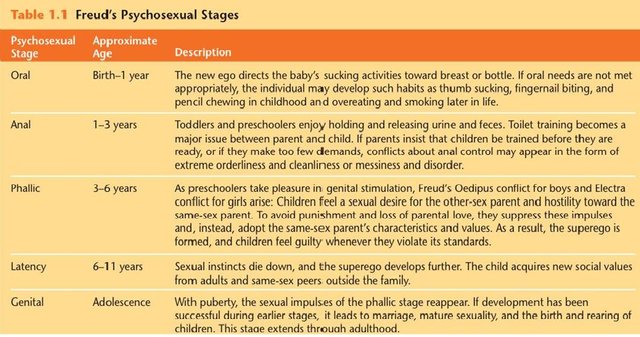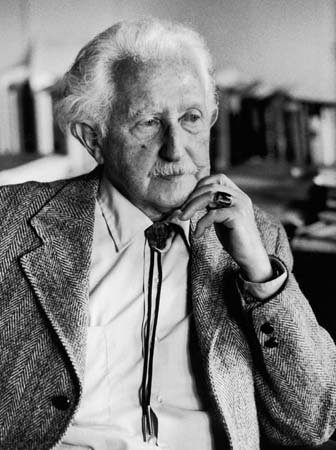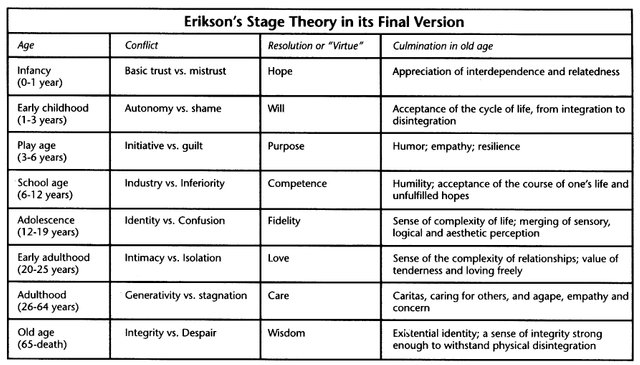The PSYCHODYNAMIC PERSPECTIVE - the journey to adulthood
The psychodynamic perspective, which largely explores the influence of unconscious psychological motives, such as drives or urges on behavior, represents the oldest psychiatric/psychological perspective on child development. Its roots are traced back to the work of Sigmund Freud (1856-1939) in the late 19th and early 20th centuries. Sigmund Freud and Erik Erikson are the best known in this regard.
- FREUD'S PSYCHOSEXUAL THEORY:

Freud was a physician who specialized in diseases of the nervous system. Many of his patients were adults who suffered from ailments that seemed to have no obvious biological cause. As Freud listened to his patients describe their problems and their lives, he became convinced that early experiences establish patterns that endure throughout a person's life. Using his patients' case histories, Freud created the first psychodynamic theory, called psychoanalysis, which holds that development is largely determined by how well people resolve the unconscious conflicts that they face at different ages. As part of his theory, Freud argued that personality includes three primary components:
- The id - a reservoir of primitive instincts and drives. It is present at birth and demands immediate gratification of bodily needs and wants (e.g. a hungry baby crying illustrates the id in action).
- The ego - the practical, rational component of personality. It begins to emerge during the first year of life, as infants learn that they cannot always have what they want. The ego tries to resolve conflicts that occur when the initiative desires of the id encounter the obstacles of the real world and then tries to guide the id's impulsive demands into socially more acceptable behaviors. (e.g. a young child who does not have a toy who is envious of another child who has one). According to Freud, the id would urge the child to grab the toy, but the ego would encourage the child to play with the friend and in the process, also with the attractive toy.
- The superego (moral agent) in the child's personality. It emerges during the preschool years as children begin to internalize adult standards for right and wrong. (If the other child left the attractive toy unattended, the id might tell the child to grab the toy and run; the superego would remind the child that taking another's toy would be wrong)
Freud also proposes a series of psychosexual stages through which a child moves in a fixed sequence determined by maturation. In each stage, the focus is on a different part of the body called the erogenous zones, which are dominated by sexual instincts. Permitting either too much or too little gratification of these urges, problems may result, which Freud called fixation. This means that development is arrested at a certain stage and the child cannot move ahead.

However, scientists criticized many aspects of Freud's work. They argued that his views of development were based on adults recalling the past, not from observing children directly. Apart from the fact that recollection (recalling a memory) is not a reliable source of scientific data, Freud's patients can hardly be viewed as representative of "normal" people. It is also almost impossible to research the basis of Freud's theory, namely the unconscious, with the result that it has not be empirically proven. A serious criticism of Freud's theory is that he saw the first approximately six years of life as the main developmental period that determines the rest of a person's life. Today, most psychologists accept that all life stages are important, that psychological growth continues throughout life, and that trauma at any stage of one's life can have a significant effect. Most psychologists also agree that Freud over-emphasized the role of sexual feelings in the development of the child, while ignoring other important areas such as cognitive development.
Although these and other shortcomings have undermined much of Freud's theory, his insights have had a lasting impact on child development research and theory.
Firstly, he noted that early experiences could have enduring effects of children's development.
Secondly, he suggested that children often experience conflicts between what they want to do and what they know they should do.
Thirdly, and this is probably the most important contribution, he stimulated debate and research as probably no other mental health professional has done in history. This led to not only adaptations of his theories by his followers, but paved the way for many of the widely accepted theories of today.
- ERIKSON'S PSYCHOSOCIAL THEORY:

Erik Erikson (1902-1994), Freud's student, embraced Freud's idea of unconscious conflict, but he emphasized the psychological and social aspects of conflict, rather that the biological and sexual aspects. In Erikson's psychosocial theory, development consists of a sequence of stages, each defined by a unique crisis or challenge. The complete theory includes the eight stages as shown below. The name of each stage reflects the challenge that individuals face at a particular age. For example, the challenge for infants is to trust their environment. Children who establish this develop basic trust, and those who do not, experience mistrust.

Erikson also argued that the earlier stages of psychosocial development provide the foundation for the later stages. For example: Adolescents who do not meet the challenge of developing and identity will not establish truly intimate relationships as adults; instead, they will become overly dependent on their partners as a source of identity.
Whether we call them conflicts, challenges or crises, the psychodynamic perspective emphasizes that the journey to adulthood is difficult because the path is strewn with obstacles. Outcomes of development reflect the manner and ease with which children surmount life's barriers. When children overcome early obstacles easily, they are better able to handle the later ones.
Although Erikson's theory has the same lack of clarity and empirical research as Freud's theory, Erikson's exposition of psychosocial changes to a certain degree captures the essence of personality development during childhood and adolescence.


@bdmomuae this is a very good read and reminds my of my undergraduate days... Thanks for sharing. Upped and wish you a blessed weekend.
Thanks @charles1 ;) Oh so you can upvote too? Wow. Amazing. I was beginning to think you didn't know how to, lol.
Lol my dearest one @bdmomuae I can do more than upvoting!! you wanna know?
Mmmm I don't know...do I?
Dont dare me!!! I can disappear and come to you!!!
Once again...Seeing is believing!
Okay...you dared me.......!!!! Abracadabra!!! open your door...have been waiting outside
🙊🙉🙈
Upvoted and resteemed! Excellent post @bdmomuae! Very interesting indeed. Felt like I am back in university.
Thanks @giantbear Welcome to 2017 at university. Not much has changed it seems, lol.
Thank you for sharing